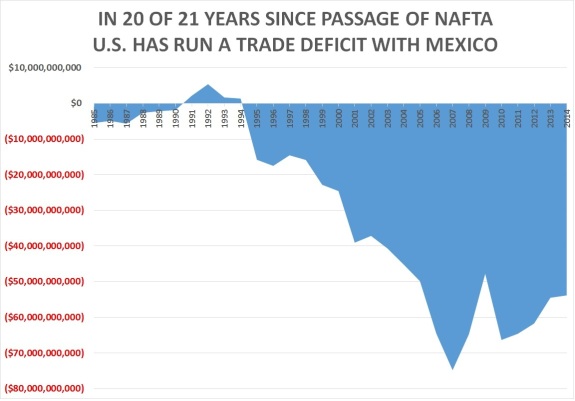
Many libertarians are worried about Trump’s hostility towards free trade. One argument I keep hearing is that free trade benefits both countries that are involved in it seeing as it is a voluntary arrangement which nobody is forced into. Mike Maloney is one such classical liberal who puts forward this argument on his Gold and Silver youtube channel which I enjoy watching; https://www.youtube.com/watch?v=jy-JVNWm1K8.
But there is one big flaw in this argument as I see it. Countries don’t trade with each other, but rather individuals within these countries trade with other individuals (or collections of individuals in the case of companies) in other countries.

‘China’ doesn’t sell cars to the ‘USA’. Car companies based in China sell cars to consumers in the USA. Classical Liberals are half right that in such transactions both parties benefit, or at least perceive themselves to benefit. But that is not to say that China and the USA benefit, because they are not the parties in this transaction.
Let’s take an example:
There are two cars exactly the same in specifications, but one is made in the USA at a cost of $20,000 and one in China for a cost of $18,000 including transport and tariffs. Mr Smith, being a rational individual, buys the Chinese one. The Chinese company (or a non-Chinese company based in China) and Mr Smith both benefit. The company gets the sale and Mr Smith saves $2,000.
But the company which has a factory in the USA loses out, and by extension so do other Americans who work (or would have worked) at the plant, and the surrounding area, as well as the shareholders who are presumably more likely to be Americans than the shareholders of the Chinese manufacturer. ‘America’ could well lose out even if Mr Smith (the ‘American’ part of this transaction as many Classical Liberals would tell the story) gains.
The losses for the American company, American workers, and the local area, could conceivably outweigh the gains that Mr Smith had.
The fault of the simplistic examples the Classical Liberals use lies in the fact that countries do not trade with each other, and in saying they do, they leave out the many Americans who lose out from international trade from being included in the ‘American’ part of the trade occurring between ‘China and America’.
To this the Classical Liberals might say that the dollars going from Mr Smith to the Chinese company must at some point be used to purchase American goods, and so in the long run trade benefits both parties.
But America has had huge trade deficits with countries like China and Mexico for several decades, which show no sign of ending. The destruction caused to America’s economy and to the many millions of American workers in this period would seem a very high price to pay for the promise of booming exports at some faraway date as dollars that had been accumulated by countries such as China and Mexico find their way back to America. And besides, at that point, after thirty, forty, or fifty years of trade deficits with these countries, such exports would simply be used to pay off the imports from previous generations, rather than create any new wealth.
Sometimes free trade works, sometimes it doesn’t. The last thirty years has shown us that free trade between very rich and very poor countries tends not to benefit the rich countries. This is especially true when the free trade in goods and services is coupled with a free movement of capital, allowing companies from the rich countries to invest in plants to export goods back home again.
On this, President Trump is right and the tired, lazy arguments of Classical Liberals with regards free trade are wearing increasingly thin.